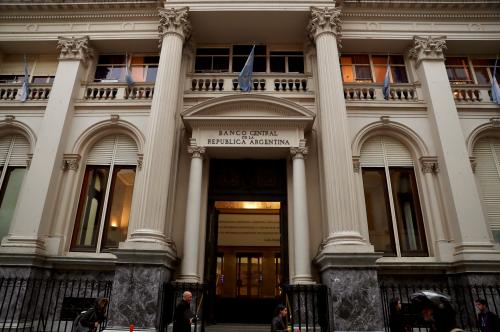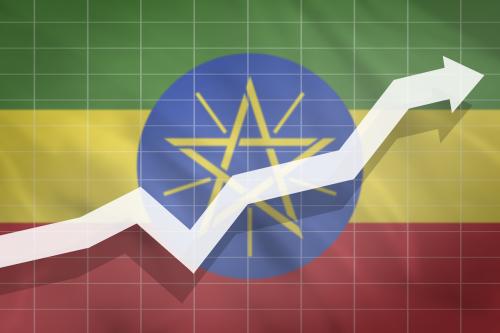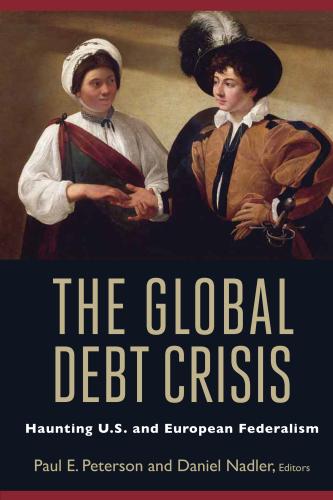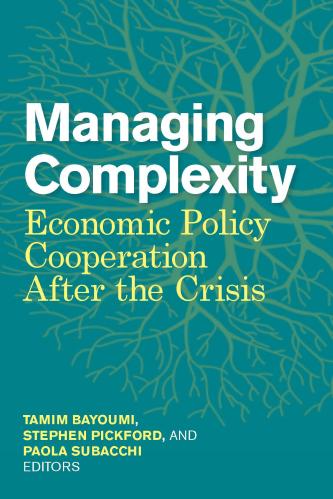Argentina is on the brink of a new, disorderly default. The government’s original debt plan, an aggressive offer to solve once and for all Argentina´s long-standing external problems, is likely to be turned down by external creditors. The coronavirus crisis opens a door to a viable plan B: a “standstill” agreement—more specifically, a reprofiling exchange—to postpone debt service until after the crisis is over, the only workable option to suspend debt payments without falling into default.
From the very beginning, the new Argentine administration favored the avoidance of a default on foreign debt (roughly $66 billion, or 15 percent of GDP), mainly because it could place the country in unchartered waters. Negotiations with bondholders could be long and nasty, particularly if a default opens the door to vulture investors and triggers bond acceleration—in some cases, such as the Century bond, with extremely costly fiscal consequences. In the meantime, the private sector could lose access to external credit and abort the investment rebound critical to restoring growth after a decade of stagnation.
In the past few months, though, the government adopted a tougher stance toward creditors and developed models of debt sustainability that implicitly assumed a solvency problem—rather than the liquidity problem that most private and official observers agreed on in 2019—in need of deep haircuts. Soon thereafter, the International Monetary Fund came into play with a macroeconomic scenario that was surprisingly bearish, in a report—prepared at the government´s request—in which they argued for significant nominal debt relief of between $55 billion and $85 billion over the next decade.
The IMF´s assumption—at odds with its traditional view—that Argentina cannot improve its primary balance nor increase growth in the next few years may be in part a reflection of the IMF´s own priorities: cutting losses and getting repaid first—at the expense of an aggressive private debt deal. It will not be the first time that the IMF plays the roles of judge and interested party in an Argentine debt negotiation.
Whereas the government is using the IMF report to support a more aggressive offer, many bondholders hold a different view: They look ready to accept a mix of haircuts and maturity extension, but not the one minister Guzmán has been insinuating.
The coronavirus crisis makes an aggressive approach even more difficult in a number of ways. The dramatic deterioration of the economic situation casts doubts on the potential compression of spreads the day after the deal—the 10 percent exit yield used in many simulations prior to the crisis appears wildly optimistic. This hurts both the value of any given offer for creditors—as it penalizes duration and increases net present value loss of any debt maturity extension —and the government´s incentive to concede: What is there to be gained from the exchange in the near future—the politician´s horizon—if not renewed access to voluntary markets?
The coronavirus crisis makes a default more likely for another reason: It makes any macroeconomic program a fragile and speculative construction. The government, the creditors and the IMF may be exchanging excels forever, with no solid base to judge projections or evaluate the policy space.
Last but not least, as investors worry about the overall outlook for emerging markets and try to absorb losses everywhere, they may be less willing to evaluate an Argentine offer in depth. At current prices, with limited downward risk, some of them may be inclined to try their luck in court, conspiring against the majorities needed for a successful exchange.
There is a silver lining though. The coronavirus crisis provides a natural argument for a postponement. At this stage, it would be ideal to wait for the crisis to phase out to initiate negotiations in earnest, but the government cannot afford to keep paying the debt service with reserves for long—and this crisis will be long.
A close alternative to avoid a protracted default would be to negotiate a standstill agreement: the reprofiling of debt service with a view to a new renegotiation—say, in 2022—under a more stable economy and with a better idea of what the country can afford to offer. In this agreement, Argentina would ask to postpone any payment of principal that comes due in the next two years and, based on this premise, negotiate a mix of coupon haircuts and capitalization as an interim solution to transit this emergency without confronting the Damocles sword threat of a default.
This strategy could be combined with the resumption of the suspended IMF standby agreement under more lenient fiscal targets—after all, the IMF itself has just recognized Argentina´s solvency problems, which are being drastically worsened by the coronavirus crisis—which would give the country access to the program´s remaining $13 billion—part of which could be used to sweeten the standstill offer.
True, what we recommend here is a short-term response to a long-term problem. But even if one thinks that a debt deal could be the definitive answer to Argentina´s long-standing external problems—we don’t—a workable second-best solution is often better than a first best flop.
The Brookings Institution is committed to quality, independence, and impact.
We are supported by a diverse array of funders. In line with our values and policies, each Brookings publication represents the sole views of its author(s).









Commentary
How to avoid a new Argentina default?
April 3, 2020